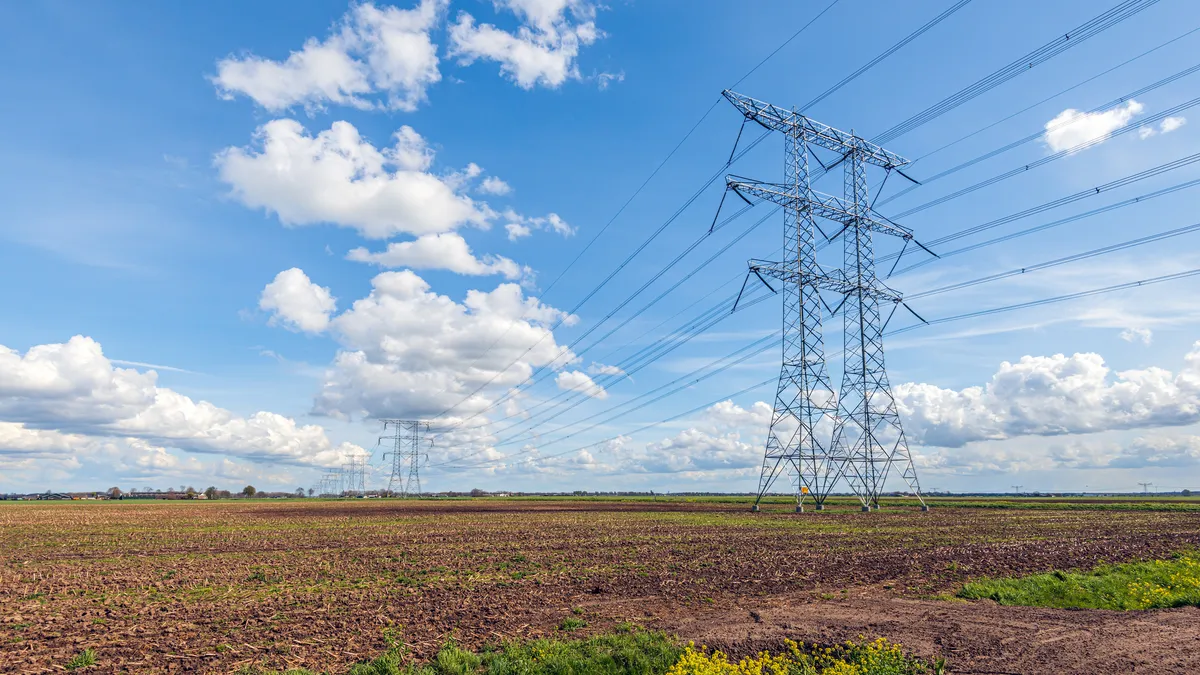Dive Brief:
-
The Southwest Power Pool’s board of directors selected a NextEra Energy subsidiary to build a $55 million transmission project in Oklahoma, marking the fourth time the grid operator has used competitive solicitations in its transmission planning process, SPP said Tuesday.
-
An SPP expert panel reviewed seven offers for the 48.4-mile, 345-kV line connecting the Minco and Draper substations, with the losing bids ranging from $74 million to $97 million, according to a report on the solicitation included in the board’s agenda package. The board selected a $77.6 million proposal by Transource Energy, a joint venture of American Electric Power and Evergy, as a backup project.
-
However, the Federal Energy Regulatory Commission's just-released transmission planning proposal would give utilities the right of first refusal for regional projects, effectively killing competitive transmission development, according to Ari Peskoe, director of Harvard Law School's Electricity Law Initiative. "Is this SPP project the last competitive transmission project?" Peskoe asked Wednesday.
Dive Insight:
Since FERC in 2011 issued its Order 1000, partly to open transmission development to competition, SPP has completed solicitations for three regional transmission projects, including the just-selected NextEra project, which is designed to reduce congestion in the Oklahoma City area.
Besides being the least expensive proposal, NextEra Energy Transmission Southwest's project has a range of benefits compared with the other bids, according to SPP’s panel that reviewed the solicitation.
“[NextEra’s proposal] backs up its low construction cost estimate with the best cost cap guarantees of any proposal, including relatively tight caps on both the annual transmission rate revenue requirement and the projected construction cost,” the panel said in a report to SPP’s board.
Also, NextEra proposed an in-service date of July 1, 2024, six months before the target date specified in the solicitation, with “meaningful” cost guarantees if the deadline isn’t met, according to the report.
“The early in-service date would allow lower-cost energy to flow across the project’s transmission lines, to the benefit of SPP’s customers, sooner than targeted by SPP,” the panel said in the report.
Through an earlier solicitation, SPP last year awarded NextEra a contract for the 345-kV Wolf Creek-to-Blackberry project, which, at $85.2 million, was 27% less expensive than the next least expensive bid. In 2020, SPP selected Transource as the winning bidder for the Sooner-Wekiwa project in Oklahoma.
The latest NextEra project grew out of SPP's 2020 planning cycle. The grid operator’s 2021 Integrated Transmission Plan, partly approved in January, includes 28 projects expected to cost about $1 billion. None of the projects were open to competition.
The outlook for competitive transmission development is dim, according to Peskoe.
Generally, utilities have stifled competitive transmission development in the four multi-state regional transmission organizations and outside of the RTOs, Peskoe said, noting, for example, ISO New England has had only one bidding process.
Also, states like Texas, Minnesota and Iowa adopted laws giving incumbent utilities the right of first refusal to build transmission projects that would otherwise have been put out to bid.
Meanwhile, FERC’s proposal to revamp its transmission planning and cost allocation rules would effectively kill competition in the transmission sector, according to Peskoe.
FERC noted in its April 21 proposal that Order 1000 may have given incumbent utilities "perverse investment incentives" to avoid regional transmission development, but the commission failed to address the issue, Peskoe said.
FERC also proposed giving incumbent utilities the right of first refusal for jointly-owned regional transmission projects, which Peskoe said opens a path for utilities to divide up transmission development among themselves.
"It'd be hard for me to imagine that the utilities wouldn't basically carve this up amongst themselves," Peskoe said. "They'd have some sort of understanding of who partners up with who on certain projects."















